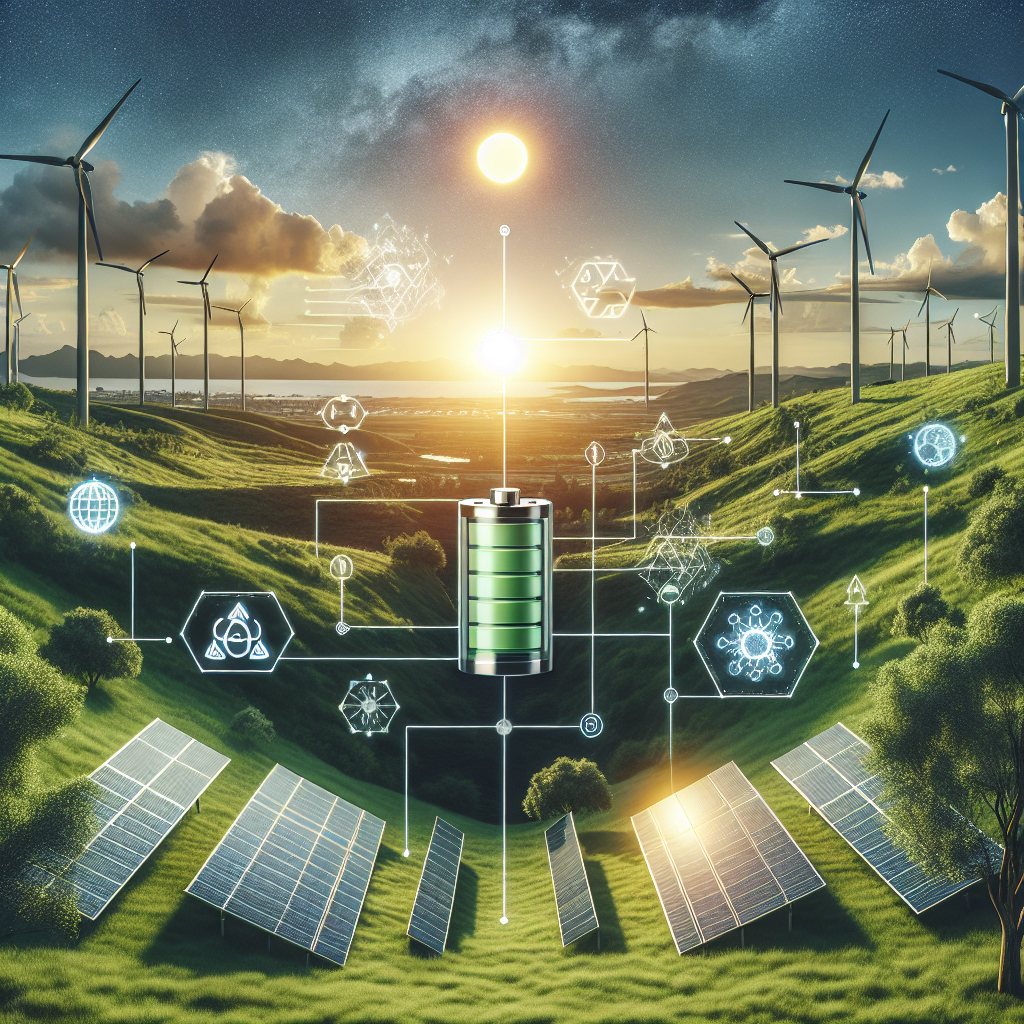Artificial intelligence (AI) has been increasingly utilized in various industries to optimize processes, improve efficiency, and reduce costs. One such field that has seen significant advancements in AI applications is the renewable energy sector, particularly in the realm of energy storage management. With the growing focus on transitioning to clean and sustainable energy sources, the need for effective energy storage solutions has become more pressing than ever. AI offers a range of tools and technologies that can enhance the performance and reliability of energy storage systems, ultimately contributing to the wider adoption of renewable energy sources.
Energy storage plays a crucial role in the integration of renewable energy sources, such as solar and wind power, into the grid. These sources are intermittent in nature, meaning that their output fluctuates based on factors like weather conditions and time of day. Energy storage systems help to store excess energy generated during periods of high production and release it during times of high demand or low production. This helps to stabilize the grid, balance supply and demand, and improve overall energy efficiency.
AI can be used in various ways to optimize energy storage management in renewables. One of the key applications of AI in this context is predictive analytics. By analyzing historical data, weather patterns, and other relevant factors, AI algorithms can forecast energy production and consumption patterns with a high degree of accuracy. This enables energy storage systems to anticipate changes in demand and adjust their operations accordingly, maximizing efficiency and reducing costs.
Another important use of AI in energy storage management is in the optimization of battery performance. Batteries are a critical component of energy storage systems, and their performance can significantly impact the overall efficiency and reliability of the system. AI algorithms can analyze data from sensors and other sources to monitor the health and condition of batteries in real-time, allowing for proactive maintenance and optimization strategies. This can help to extend the lifespan of batteries, reduce downtime, and improve overall system performance.
AI can also be used to optimize the charging and discharging cycles of energy storage systems. By continuously analyzing data on energy production, consumption, grid conditions, and other factors, AI algorithms can dynamically adjust the operation of the system to maximize efficiency and minimize costs. This can help to reduce peak demand charges, improve grid stability, and enhance the overall value of energy storage systems.
In addition to these applications, AI can also be used to optimize the placement and sizing of energy storage systems in the grid. By analyzing data on energy usage patterns, grid congestion, and other factors, AI algorithms can identify the optimal locations for energy storage installations and determine the appropriate size and capacity of the systems. This can help to maximize the benefits of energy storage, improve grid reliability, and reduce the need for costly grid upgrades.
Overall, AI applications for enhancing energy storage management in renewables offer a range of benefits, including improved efficiency, reliability, and cost-effectiveness. By leveraging AI technologies, renewable energy developers, utilities, and grid operators can optimize the performance of energy storage systems, maximize the value of renewable energy sources, and accelerate the transition to a clean and sustainable energy future.
FAQs:
Q: What are the main benefits of using AI in energy storage management in renewables?
A: AI offers a range of benefits for energy storage management in renewables, including improved efficiency, reliability, and cost-effectiveness. By leveraging AI technologies, energy storage systems can optimize their operations, anticipate changes in demand, maximize the performance of batteries, and reduce costs.
Q: How does AI help to optimize the performance of energy storage systems?
A: AI algorithms can analyze data on energy production, consumption, weather patterns, grid conditions, and other factors to optimize the performance of energy storage systems. By forecasting energy production and consumption patterns, monitoring battery health, and dynamically adjusting charging and discharging cycles, AI can help to maximize efficiency and reliability.
Q: How can AI help to reduce costs in energy storage management?
A: By optimizing the performance of energy storage systems, AI can help to reduce costs in a number of ways. For example, AI algorithms can help to minimize peak demand charges, extend the lifespan of batteries, reduce downtime, and improve overall system efficiency, all of which can lead to cost savings.
Q: What are some of the challenges associated with using AI in energy storage management in renewables?
A: While AI offers many benefits for energy storage management in renewables, there are also some challenges to consider. These may include data privacy and security concerns, the need for specialized expertise to implement and maintain AI systems, and potential regulatory and policy barriers.
Q: How can companies and organizations get started with implementing AI for energy storage management in renewables?
A: Companies and organizations looking to implement AI for energy storage management in renewables should start by identifying their specific needs and goals, conducting a thorough assessment of their data and infrastructure, and engaging with AI experts and technology providers. It is also important to ensure compliance with relevant regulations and standards, and to continuously monitor and evaluate the performance of AI systems to ensure optimal results.

